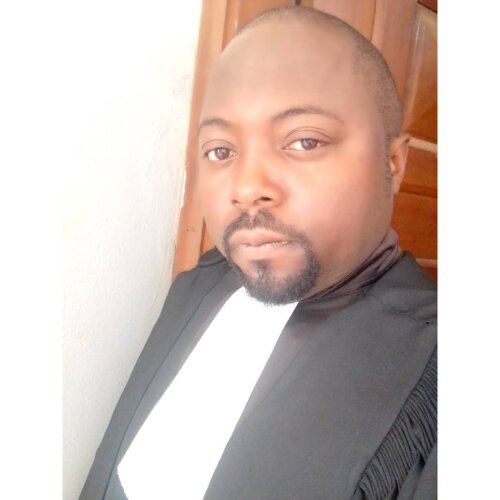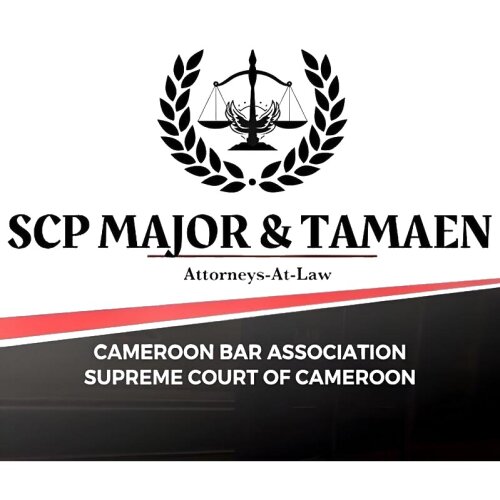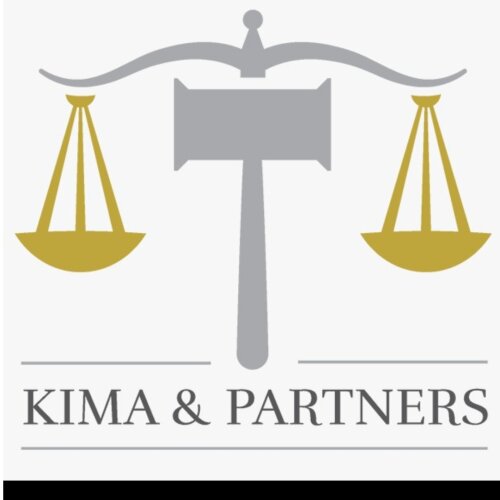Best Mining Law Lawyers in Yaoundé
Share your needs with us, get contacted by law firms.
Free. Takes 2 min.
List of the best lawyers in Yaoundé, Cameroon
Legal guides written by CHI & Partners Law Firm:
- Ship Registration in Cameroon
About Mining Law in Yaoundé, Cameroon
Mining Law in Yaoundé, Cameroon refers to the legal framework governing the exploration, extraction, and management of mineral resources within the city and the broader Central region of the country. The mining industry in Cameroon is regulated primarily by the Mining Code, which establishes the rules for licensing, compliance, environmental protection, taxation, and the rights and obligations of all stakeholders engaged in mining activities. In Yaoundé, which is also the location of most key regulatory authorities, individuals and entities must comply with national legislation as well as local regulations to lawfully conduct mining operations.
Why You May Need a Lawyer
There are various situations where legal advice or representation is crucial in Mining Law:
- Obtaining a mining or exploration permit
- Negotiating joint ventures or investment agreements in mining projects
- Understanding the compliance requirements with environmental and safety standards
- Resolving disputes between mining companies and local communities, landowners, or the government
- Drafting and reviewing contracts or deeds related to mining concessions
- Advising on taxation, royalties, and fees associated with mining activities
- Representing clients in administrative, civil, or criminal proceedings related to mining operations
- Ensuring compliance with export regulations for minerals
- Handling issues related to the transfer or assignment of mining rights
- Addressing issues of corporate social responsibility and community impact mitigation
Given the complexity and depth of mining regulations and their implications, professional legal guidance helps prevent costly errors and ensures lawful, sustainable operations in the mining sector.
Local Laws Overview
The primary legal document regulating mining in Cameroon is Law No. 2016/017 of 14 December 2016, known as the Mining Code. Supplementary decrees and ministerial orders provide further details on licensing, operations, and environmental management. Key aspects include:
- Licensing and Permits: All exploration and exploitation activities require prior authorization from the government. Permits are granted preferentially to Cameroonian nationals but are also available to foreign investors under set conditions.
- Types of Mining Rights: These include reconnaissance licenses, exploration permits, small and large scale mining licenses, and quarry permits. Each category has its own specific legal requirements, durations, and obligations.
- Environmental Protection: Operators must conduct environmental impact assessments and implement approved environmental management plans.
- Local Content: The law encourages involvement of local communities and prioritizes employment of Cameroonians and use of local goods and services.
- Taxation: Companies must pay royalties, surface rent, and other statutory taxes, as specified by the law.
- Dispute Resolution: Disputes are generally settled within Cameroonian courts, though arbitration is possible if provided by contract.
- Transfers and Assignments: Mining titles may be transferred only with governmental authorization and are subject to strict conditions.
Local regulations in Yaoundé, such as zoning laws and land-use requirements, may also apply and intersect with national mining regulations.
Frequently Asked Questions
What are the main requirements to obtain a mining permit in Cameroon?
You need to submit a detailed application to the Ministry of Mines, Industry and Technological Development, provide proof of technical and financial capacity, present a work program, and pay the required fees. Environmental impact assessment and compliance plans are also mandatory.
Can foreigners hold mining rights in Yaoundé, Cameroon?
Yes, but foreign investors must comply with specific provisions, such as creating a local subsidiary and fulfilling partnership and local content requirements set by the Mining Code.
What types of mineral resources are commonly exploited?
Common minerals include gold, bauxite, iron ore, cobalt, diamonds, and construction materials like limestone and granite.
Is an environmental permit required before mining?
Yes, all mining operations must undergo an environmental impact assessment and receive authorization to ensure compliance with environmental standards.
How are communities compensated for mining activities on their land?
The law provides for compensation for loss of access and usage rights, as well as social and economic development projects funded by mining operators.
What taxes and royalties must miners pay?
Miners are subject to royalties (based on the value of production), surface rent, corporate taxes, and various fees outlined in the Mining Code and tax legislation.
How are disputes between mining companies and local populations resolved?
Disputes may be resolved through mediation, administrative hearings, or the courts. In some cases, contractual arbitration is also permitted.
Can a mining license be revoked?
Yes, if the holder breaches obligations such as failure to pay taxes, disregard for environmental standards, or illegal practices, the government may revoke the license.
How long is a typical mining permit valid?
It depends on the type of permit. Exploration permits may last up to three years, usually renewable, while exploitation permits can range from five to twenty-five years, depending on the scale of operations.
What governmental bodies oversee mining in Yaoundé?
The main body is the Ministry of Mines, Industry and Technological Development. Other relevant bodies include the Ministry of Environment, Nature Protection and Sustainable Development and the local administrative authorities.
Additional Resources
For further guidance and detailed information about Mining Law in Cameroon, consider consulting the following:
- Ministry of Mines, Industry and Technological Development (MINMIDT) - Main regulator for mining activities in Cameroon
- Ministry of Environment, Nature Protection and Sustainable Development - For environmental compliance and permits
- National Mining Registry - For records of mining titles and permits
- Chamber of Commerce, Industry, Mines and Crafts of Cameroon - Offers support for businesses, including legal information
- Local bar associations and professional networks of lawyers specializing in mining and natural resources law
- Regional and local administrative offices in Yaoundé for information on specific land use and zoning requirements
Next Steps
If you require legal assistance in Mining Law in Yaoundé, Cameroon, consider these steps:
- Identify the specific legal need you have, such as permit application, dispute resolution, or regulatory compliance.
- Collect all relevant documents and information regarding the mining project or issue.
- Contact a qualified lawyer specializing in Mining Law, preferably based in Yaoundé for local expertise.
- Schedule an initial consultation to discuss your objectives and challenges.
- Follow the advice provided by your lawyer and ensure ongoing compliance with all legal requirements throughout the mining process.
Navigating Mining Law can be complex, but with the right legal support and resources, you can protect your rights and interests while contributing to responsible resource development in Cameroon.
Lawzana helps you find the best lawyers and law firms in Yaoundé through a curated and pre-screened list of qualified legal professionals. Our platform offers rankings and detailed profiles of attorneys and law firms, allowing you to compare based on practice areas, including Mining Law, experience, and client feedback.
Each profile includes a description of the firm's areas of practice, client reviews, team members and partners, year of establishment, spoken languages, office locations, contact information, social media presence, and any published articles or resources. Most firms on our platform speak English and are experienced in both local and international legal matters.
Get a quote from top-rated law firms in Yaoundé, Cameroon — quickly, securely, and without unnecessary hassle.
Disclaimer:
The information provided on this page is for general informational purposes only and does not constitute legal advice. While we strive to ensure the accuracy and relevance of the content, legal information may change over time, and interpretations of the law can vary. You should always consult with a qualified legal professional for advice specific to your situation.
We disclaim all liability for actions taken or not taken based on the content of this page. If you believe any information is incorrect or outdated, please contact us, and we will review and update it where appropriate.













